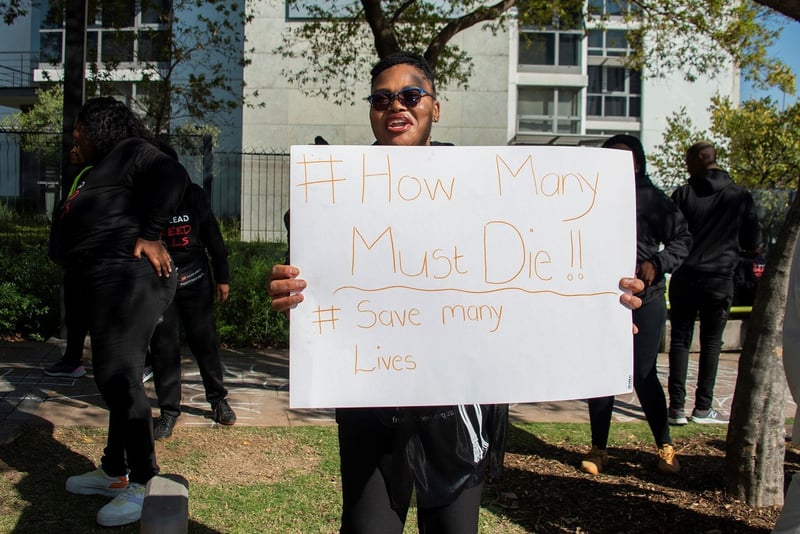“An Open Invitation To Catastrophe” AHF Warns Against Flawed Who Pandemic Agreement
Written by: Tyler Oliver Save to Instapaper
Johannesburg (8 May 2024) AIDS Healthcare Foundation (AHF) has issued a dire warning about the current draft of the World Health Organization (WHO) Pandemic Agreement. With the final negotiations imminent, AHF criticizes the document's glaring oversite of equity and transparency, highlighting that it will pave the way for a global health disaster comparable to or worse than the COVID-19 pandemic unless these key points are addressed.
"The agreement, as drafted, is a recipe for disaster," says Dr. Kate Ssamula, Country Program Director for AHF South Africa. "It lacks enforceability, it's riddled with empty promises, and shockingly, it capitulates to pharmaceutical interests over global health needs. This isn't precaution; it's peril."
Significant flaws in the Current WHO Pandemic Agreement Draft:
Inadequate Health Product Guarantees: The agreement shockingly promises only 20% coverage of essential health products during future pandemics, leaving a vast 80% subject to the brutal market competition and scarcity witnessed during the COVID-19 era. This sets the stage for a repeat of past inequities where wealthy nations hoarded life-saving treatments.
Exclusion of Civil Society in Planning: The draft sidelines crucial voices from civil society and non-governmental organisations despite their proven impact on managing health crises. This exclusion raises serious concerns about the agreement's fairness and inclusiveness.
Neglect of Equity and Fair Access: The draft must be revised to ensure equitable access to health resources. With developed countries shaping the agreement to protect drug companies, the rest of the world is left vulnerable and unprepared showcasing blatant upholding of pharma greed.
Absence of Accountability and Enforcement: Without stringent rules or an independent oversight body, the agreement offers no assurance that nations will adhere to their commitments, essentially making it toothless and ineffective.
Consequences of a Weak WHO Pandemic Agreement:
"The consequences of passing this agreement are unimaginable," warns Dr. Ssamula "The African continent is at risk of entering the next global health crisis blindfolded, with our hands tied and again at the mercy of wealthy nations. The agreement leaves too much to chance – an open invitation to catastrophe."
AHF strongly advocates for a complete overhaul of the agreement, demanding:
A guarantee of at least 80% coverage of essential health products globally during pandemics,Enforceable commitments with clear penalties for non-compliance,An independent oversight mechanism to monitor and report on progress,Full participation of civil society and affected communities in the agreement's drafting and implementation.
"Remember how Big Pharma blocked vaccine access during COVID-19? The Pandemic Agreement must put health over profits. The WHO needs to allow countries to suggest clauses to help stop this from happening again. In the final stretch of negotiations, countries would be wise to remember how we got here, what needs to be accomplished through the pandemic agreement, and, most importantly – what the consequences will be if it fails.
“Therefore, we urge that delegates heed experts' warnings and take action to correct critical shortcomings in the proposed text. Empty handshakes in Geneva will not prevent another global health disaster, nor will it keep countries from trampling over each other when the next pandemic comes," concludes Dr. Ssamula
Call to Action:
In the shadow of COVID-19, the world cannot afford to ignore the lessons of the past. AHF urges all stakeholders to reconsider the path forward and to forge an agreement that genuinely prioritises global health security over profit. The time to act is now—before it is too late.
Latest from
- South Africa’s Energy Future Takes Centre Stage - Electricity Expo Africa 2025 Launches
- Growing Green Minds - Eco Lessons for Young Children
- CFI Financial Launches Free Trading Seminar in Johannesburg
- AHF South Africa Marks Youth Day with Tribute to Young Leader’s Resilience
- Youth Month - The First Steps to Financial Stability Must Start Early
- The Heart Of The Home Celebrating The Power Of Motherhood In South African Culture
- The Hidden Risk To Your Business What You Need To Know About The Financial Intelligence Centre
- Benefits Of Learning Multiple Languages – A Parent’s Role In Language Development
- CFI Financial recognised at FMAS - 25 for innovation and impact in African trading
- Understanding Global Shifts and Strategic Responses for South African Traders
- CFI Launches CFI Academy to Empower Traders and Investors
- Menstrual Health Day (28 May) – Breaking the Silence, Ending the Stigma
- Making Every Moment Count - The Value of Quality Time with Children
- Making Every Moment Count - The Power of Meaningful Time with Children
- Financial Empowerment Isn’t Just for the Wealthy – CFI CEO Zihaad Israfil Shares Practical Steps for Every South African
The Pulse Latest Articles
- Reimagine Your Daily Ritual: Meet The Shower That Does More Than Just Cleanse (August 4, 2025)
- Xlink: An Avant-garde, Purpose-driven Fintelco Driving Digital And Payments Interoperability On The African Continent (August 1, 2025)
- Success Is Just The Beginning For This South African Brand (July 31, 2025)
- Embassies Business Fair And Conference 2025 To Fast-track Africa’s Global Economic Integration (July 31, 2025)
- There Is A Small Business Funding Readiness Crisis In South Africa (July 30, 2025)
